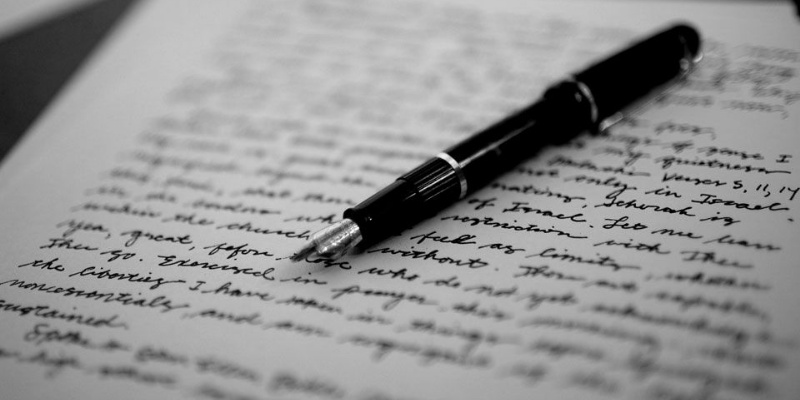Sixth Blog: Why writing is tough.

Writing is hard. Like, really hard.
Writing is also one of the most tangible ways, in which we are able to express ourselves.
As a self-proclaimed lover of flowery language and waffle, and words all my friends think are too inappropriate for everyday use, it can be easy to assume that I find writing easy. And I do. But I also think that writing makes one extremely vulnerable, and I guess am I am okay with that, but even if the most in-depth writing you do is an English essay once a half-term, that makes you vulnerable, for how is it possible to not reveal who you are, when you seek to extricate the exact same thing from an author’s intentions? How are judgement and evaluation possible, without at least a sliver of introspection?
As I sit in my room, far too tired to decipher whether this article will amount to anything more than my self centred musings on the human condition and the impact of literature, having just misspelt the word ‘decipher’, which must of course be an accomplished achievement for any higher English student, I am only just now realising how hard writing is. That is to say, having to express yourself through the English language is so fundamental and elementary, that sometimes we forget how it functions. Presumptuously, I believe that we all get bogged down trying to pick the best adjective, the best verb, the best presumptuous sentence opener, and that we forget that we only really need to convey one thing: our message. Before any incensed English teachers hunt me down for my blasphemous words, in which case I would like for this article to be published anonymously, it is okay if you are not that good at writing. It is okay if you might not have realised that I am not using any contractions, so as to retain some withering semblance of formality in this article, despite its jarringly conversational tone.
So, hopefully ignoring what I just said, in favour of actually getting a message across sometime soon, it is okay to be bad at writing. It is okay to hate essays and hate analysing texts, because writing is unavoidable in your life. I know that seems contradictory, but stick with me; writing is unavoidable in your life — it is writing emails, reports, scientific evaluations (this one may be a bit of a stretch for my point), text messages even, and so you can never completely avoid being told to just bang out a piece of writing, complete with an introduction, conclusion, and assorted assemblage of points somewhere in between.
Therefore, if we cannot avoid having to write, and you are a self proclaimed ‘bad writer’, there is hope for you yet. When you write, it is the same ‘stuff’, that you use, when you would physically speak to someone! Revolutionary, I know. Your writing doesn’t have to be exceedingly formal and exhaustingly thought-provoking, it simply has to represent what you want to communicate, just as you would probably not omit contractions when speaking to your friends, but seriously, please do avoid them in essays. But if you are a ‘bad writer’, you could just own it, for I so self-righteously believe that there is no such thing as a bad writer. Break the rules to get your point across!!! Use the same connective countless times over!!! Use the same grammatical structures, like the rule of three, that you learnt in year seven!!! Use wildly inappropriate punctuation!!!
As long as you, yourself, are able to definitively and truthfully be reflected in your writing, no one can fault you, perhaps other than your English teacher. We often forget that writing is about expressing yourself and your views in the most effective way that you can, be that through technical, niche vocabulary, stilted, insecure sentences, or through misguided paragraphs. Allow yourself to find true enjoyment in what you are writing, and you will enjoy the act itself, your cacophony of emotions and thoughts spilling over, just like an oil spill on the motorway (probably not the most apt comparison). Thus, give yourself the artistic license to be a ‘bad writer’, so that you may perhaps give yourself the artistic license to be a true writer?
Write what you want. Write how you feel. But please just write.
Alison Balint, Year 12.
